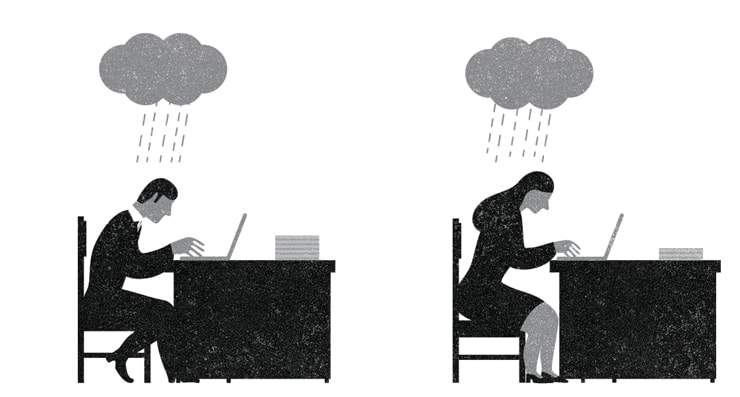People tend to operate from a mindset of either empowerment or disempowerment at work. Choosing the former can make a big difference in how you feel about your job.
Feeling empowered at work is energizing. You approach your job with enthusiasm, as if you have everything to offer, and everything to gain. You sense that your contributions are valued and are eager to share ideas. An empowered organization is the result of a clear mission, good management, and realistic expectations about resources and workload.
If you feel disempowered at work, you’re likely stressed out, feel like there’s never enough time and maybe that your contributions don’t matter. The workday can feel like a house of cards—if one card falls, it will all crumble. Organizationally, people are defensive and anxious, and both resources and support appear scarce.
The workday can feel like a house of cards—if one card falls, it will all crumble.
Like being an optimist or pessimist, some people just naturally approach life from a more empowered or disempowered stance. And the reality is, our professional worlds are dynamic and we all move through periods when we feel both ways. But choosing empowerment begins with facing your internal dialogue.

Take your work pulse
Begin to tune in to your thoughts about work. What messages do you tell yourself (and by extension, others)?
I’m really excited about this new project.
It doesn’t really matter what I do, because my boss is going to take credit anyway.
I’m going to try for that promotion. I think I’ve got a good chance.
I’d like to get ahead, but I just can’t take on anything else.
Another reorg? This company is a disaster. I’ve just got to keep my head down, do my work, and update my resume.
What about the dominant mindset of your organization? Disempowered coworkers and teams struggle with boundaries and meeting their deliverables. They may be less willing to collaborate because they feel defensive and protective.
The opposite is true for an empowered workplace: There are clear boundaries around individual responsibilities and support for people to get their work done. People enjoy their jobs, and there’s a sense of openness and collaboration.
How do you shape the story?
Consider how you contribute to the mindset you or your team has toward work.
If there’s a rumor circulating, do you pass it on, or do you look for data that supports it?
Do you notice your thoughts before you give them voice?
When you hang out with colleagues, do you complain about what’s wrong, or do you brainstorm solutions to address what could be improved?
How often do you acknowledge the work of others and show gratitude for support you’ve received?
Shift disempowered thoughts
When you notice your thoughts veering in the direction of disempowerment, ask yourself, Is it true?
Is it true that there’s not enough time (support, encouragement, opportunity, etc.)?
Is it really true that my contribution doesn’t matter or isn’t noticed?
If you notice a bit of space opening up, go deeper.
Is this still the conversation I want to have with myself and others about work?
And if it’s not, what might you do to take disempowering thoughts in a new direction?






